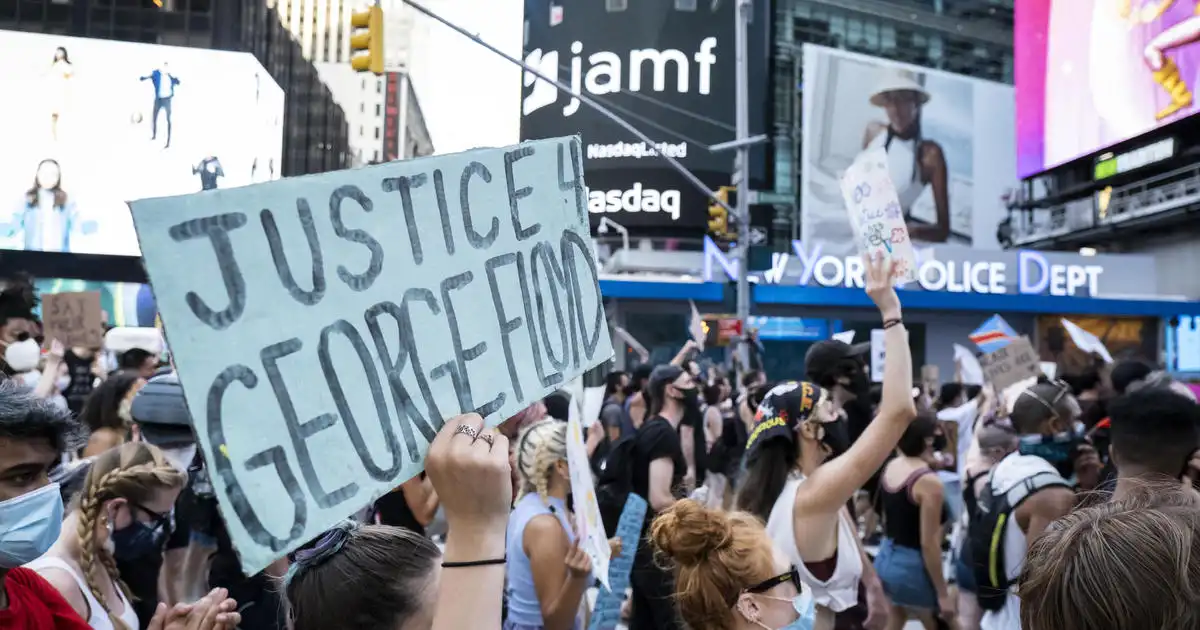Four years after George Floyd's killing, Washington struggles with police reform path
George Floyd's death sparked calls for police reform, but four years later, momentum in Congress has faded, leaving little urgency.
Four years after the tragic murder of George Floyd by a Minneapolis police officer, the momentum in Washington to enact significant reform in his name has dwindled almost completely. The death of Floyd, a 46-year-old Black man, in May 2020 ignited widespread outrage and demands for change. In response to the deep anger felt across the United States, both Democrats and Republicans in Congress introduced separate bills less than a month after Floyd's killing.
However, as time has passed since the horrifying incident where a police officer knelt on Floyd's neck for over nine minutes, there has been a noticeable lack of urgency in implementing the sweeping changes that President Joe Biden has been advocating for. George's sister-in-law, Keeta Floyd, expressed her frustration at the lack of action, emphasizing the need for tangible reforms.
The future of this issue may hinge on the outcome of the 2024 elections, as Biden faces the challenge of retaining support from Black voters crucial to his reelection bid. Despite subsequent incidents of police violence, such as the death of Tyre Nichols in Tennessee in early 2023, progress on police reform has been slow.
South Carolina Republican Senator Tim Scott, the lead GOP negotiator on police reform, highlighted the lack of progress in his speech, attributing it to political gridlock. Scott's bill, introduced after Floyd's death, was blocked by Senate Democrats who supported a more comprehensive reform effort of their own.
While Biden made addressing the systemic issues exposed by Floyd's murder a focal point of his campaign, bipartisan efforts in Congress failed to yield significant results during Trump's presidency. The president's call for unity and swift action following Floyd's death went unanswered, with disagreements over issues like qualified immunity hindering progress.
As attention on police reform wanes in Congress, concerns about rising crime rates and law enforcement staffing shortages persist. Republicans have sought to distance themselves from the "defund the police" movement, while Democrats continue to advocate for meaningful reforms.
Despite limited executive actions taken by Biden, such as the creation of a National Law Enforcement Accountability Database, comprehensive legislative changes have remained elusive. The failure to enact meaningful reforms has left communities grappling with strained relationships between police and residents.
For individuals like Nate Hamilton, whose brother was killed by police in 2014, the lack of accountability at the federal level is a source of frustration. Hamilton emphasized the need for national reform to address systemic issues within law enforcement.
While some progress has been made at the local level, the absence of federal action on police reform continues to be a point of contention. For the Floyd family, the lack of legislative action is a painful reminder of the ongoing fight for justice.
Despite the challenges faced by the Floyd family in pushing for reform, they remain steadfast in their efforts to honor George's memory and advocate for change. As they continue to make their voices heard in Washington, the hope for meaningful police reform remains a driving force in their advocacy.











Comments on Four years after George Floyd's killing, Washington struggles with police reform path